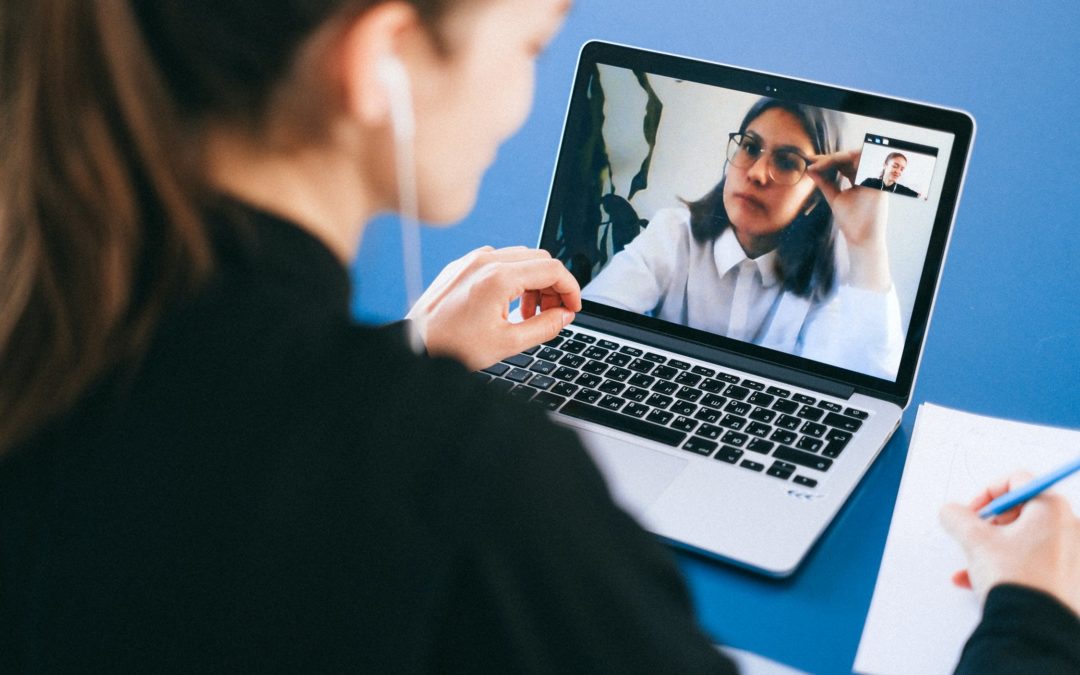
Here’s Something Good
Mentoring may have changed during the pandemic, but it remains a key component of success. Check out this short podcast to learn about what to look for in a mentor right now, and how to go about finding one.


Mentoring may have changed during the pandemic, but it remains a key component of success. Check out this short podcast to learn about what to look for in a mentor right now, and how to go about finding one.



Here are some tips to make this work for you:
Decide who will choose the reading and how much of it you will discuss at the next meeting.
Make sure that the topic is related to the mentee’s goals. In mentoring, learning is always for the sake of development, and it should be tailored to the mentee’s learning objectives.
Nothing kills follow-through like being overwhelmed. If you choose a book, break it into chapters and agree to read a few chapters, The idea is to generate enthusiasm for learning together, not to slog through the material.
Remember that this reading is just for enlightenment; it is an opportunity to learn together. Mentors, resist the temptation to teach or lecture. Plan on discussing what you learned and how you think this might relate to your mentoring objectives.
I used to live in Washington, DC, where there are crazy long escalators that go down to the metro stations. There are times I would feel like the ride on the escalator was as long as the rest of my commute. Some people hate those escalators, and even have nightmares about getting stuck on one and never making it home! Like many fears, there is no explaining this one. Even if the escalator abruptly broke down, you wouldn’t be stuck on it. You could always walk up-or down the escalator to get to your next destination.
The reliance on reading to create change is a little like waiting for someone to fix the escalator. At some point, you may have to use the skills you have to get the results you want. Knowledge will only get you so far. After you discuss your learning, create an action plan to bring that learning to life.
Sometimes mentors and mentees think that it is on a mentor to provide all of the solutions to all of a mentee’s problems. Check out this video on why that may not actually be the case!
There are some really great managers in our workplaces today. These managers understand the importance of focusing on the development of their employees. They take the time to build relationships with the people whom they manage. They create a safe space for learning, inquiry, and even for making mistakes. They are great role models, advisors, and coaches.

So why do I discourage mentees from choosing their supervisor as a mentor?
Before I answer, here is an important distinction. I DO believe that good managers should develop the competency of mentoring. I DO believe that when managers mentor others, it helps them become even better managers. But while it is important for managers to be mentors, I DO NOT think that managers should mentor people who work for them.
Here’s why:
There are two characteristics of a supervisor/employee relationship that make it less than ideal for a mentoring relationship:
Ultimately, a manager is responsible for their team’s performance and must put the organization’s interest first, even when it conflicts with the employee’s interest. Managers are hired to perform a specific job and to make sure their team’s performance is in service to the outcome they are hired to achieve. Sometimes, an employee’s interests might be at odds with that responsibility. Perhaps the employee’s best career path would take them out of that team, out of that company, or in a different role. A manager’s allegiance to the organization compromises their impartiality when they mentor their own employee.
A mentor’s primary accountability is to the development of the mentee. Since a mentor is not tethered to performance metrics, they can provide an additional unbiased perspective that can help a mentee develop in a way that is authentic to their own needs.
No matter how good the manager, ultimately, they have a say in their employee’s compensation. For mentoring to be effective, a mentee must feel safe sharing their challenges and shortcomings. It isn’t easy to build that safety when one’s job or livelihood is at stake.
There are some essential roles a manager can play in mentoring, however.
Mentees: Enlist your manager in your mentoring by:
Today’s world is ripe with hate, mistrust, criticism, and negativity. To combat check out this video on how compassion is fundamental to being a mentor.

The pandemic has surely made us race into the future. Remote work was at it’s peak this past year, with many people still working from home here in 2021. So how does mentoring, something that hinges on interpersonal connection, work in a virtual workplace? In this episode of “Thinking Inside the Box” by Matt Burns, CME’s CEO, Lisa Fain, discusses how mentoring may be in the future, and how those relationships can thrive.

Sometimes measuring mentoring requires a bit of creativity. Check out this video for some ideas on how to measure successes at all levels of a mentoring program.
The pandemic has forced us to consider what the future of work will look like sooner than we anticipated. The same goes for mentoring. How can we have meaningful and authentic relationships in a virtual setting? How can we promote diversity, equity, and inclusion through mentoring? In this episode of Thinking Inside the Box, Lisa Fain the CEO of CME and Matt Burns discuss what the future may look like for mentoring.
Getting the word out about your vision and mission out to the world is literally at our fingertips, and while that may seem straightforward…it’s not. There are so many strategies out there and it can be so challenging to figure out where to begin or how to pivot one’s social media strategy. CEO for CME, Lisa Fain, chats with Becky Robinson, creator and host of “The Book Marketing Action Podcast,” about the power of social media and the struggles that come along the way.

Ninety-seven percent of people with mentors say they found the relationship to be valuable, but 85% of workers current do not have a mentor. Considering these statistics, is it better to have a formal or informal mentoring relationship?